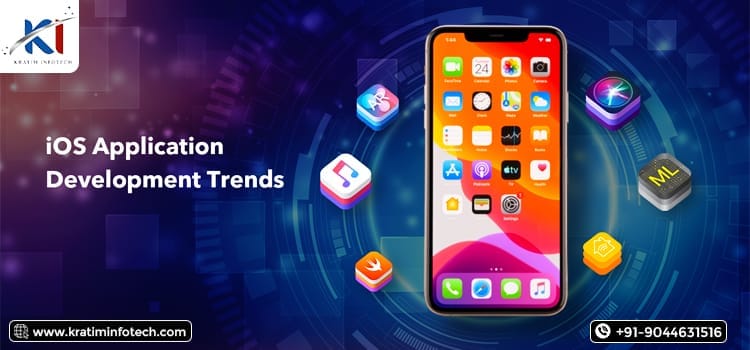IOS App Development Services Overview
Comprehensive Guide to iOS Application Development Services
In the rapidly evolving digital landscape, iOS application development services have become a cornerstone for businesses aiming to reach a broader audience with innovative and high-performance apps.This guide delves into the essential aspects of iOS app development services, exploring their benefits, the development process, and keyconsiderations for choosing the right development partner.
Why Choose iOS Application Development?
1.High-Quality User Experience:
iOS apps are renowned for their smooth performance and exceptional user experience. Apple’s stringent guidelines ensure that applications meet high standards of qualityand functionality, providing users with a seamless and enjoyable experience.
2.Strong Security Features:
Security is a critical concern in app development, and iOS is well-known for its robust security protocols. The iOS platform offers advanced protection against malware, data breaches, and other security threats, making it a preferred choice for apps that handle sensitive information.
3.Loyal User Base:
iOS users are known for their brand loyalty and willingness to invest in premium apps and in-app purchases. This can translate to higher revenue potential for businesses that developapplications for the Apple ecosystem.
4.Global Reach:
With millions of users worldwide, iOS apps have the potential to reach a vast and diverse audience. The App Store is available in multiple countries, providing developers with a global platform to distribute their apps.
The iOS App Development Process
1.Initial Consultation and Planning:
The development process begins with a thorough consultation to understand the client’s vision, goals, and requirements. This stage involves detailed discussions about the app’s purpose, target audience, and core features.
2.Market Research and Analysis:
Before diving into development, it’s crucial to conduct comprehensive market research. This involves analyzing competitors, identifying market trends, and understandinguser preferences to ensure the app addresses a genuine need and stands out in the market.
3.Design and Prototyping:
The design phase focuses on creating a visually appealing and user-friendly interface. This involves developing wireframes and prototypes that provide a clear blueprint of theapp’s layout functionality. User experience (UX) and user interface (UI) design principles are prioritized to ensure the app is intuitive and engaging.
4.Development:
This is where the actual coding takes place. Skilled developers use programming languages such as Swift and Objective-C to build the app’s functionality. This stage involves integrating various features, APIs, and third-party services to ensure the app performs seamlessly.
5.Testing and Quality Assurance:
Rigorous testing is conducted to identify and fix any bugs or issues. This includes functional testing, performance testing, security testing, and user acceptance testing.Ensuring the app meets all quality standards is crucial before launch.
6.Deployment:
Once the app passes all tests, it’s ready for deployment to the App Store. This involves adhering to Apple’s submission guidelines, which include providing a detailed app description,screenshots, and other necessary information.
7.Post-Launch Support and Maintenance:
The development journey doesn’t end with the app’s launch. Ongoing support and maintenance are vital to ensure the app remains functional and up-to-date. This includes regular updates, bug fixes, and adding new features based on user feedback.
Choosing the Right iOS Development Partner
1.Experience and Expertise:
Look for a development team with a proven track record in iOS app development. Check their portfolio and case studies to assess their expertise and experience in developing apps similar to your vision.
2.Client Reviews and Testimonials:
Client feedback provides valuable insights into the development team’s reliability, communication, and overall quality of work. Look for reviews and testimonials on their website or third-party platforms.
3.Technical Proficiency:
Ensure the development team is proficient in the latest technologies and frameworks relevant to iOS development. This includes knowledge of Swift, Objective-C, Xcode, and othe essential tools.
4.Communication and Collaboration:
Effective communication is crucial for the success of any development project. Choose a partner who is responsive, transparent, and willing to collaborate closely with you throughout the development process.
5.Post-Launch Services:
Inquire about the developer’s post-launch services, including support, maintenance, and updates. A reliable partner will offer ongoing assistance to ensure your app’s long-ter success.
Conclusion
Investing in professional iOS application development services can significantly enhance your business’s digital presence and reach. By choosing the right development partner and following a structured development process, you can create a high-quality app that meets your business goals and delights your users.


